Earlier today, Brazilian local media reported that the mother-in-law of Formula One boss Bernie Ecclestone had been kidnapped in Sao Paulo, with her captors demanding a ransom of £28m for her release.
The Ecclestone family and Brazilian police have yet to comment on the reports, but this will mark the latest high-profile episode in the life of a man noted as much for his wealth as his wits, and who has attracted as much controversy as he has admiration.
Chief executive of the Formula One Group, which controls and manages commercial rights to the racing brand, Ecclestone ranks among the most powerful figures in sporting history, with a £3.2 billion empire that makes him the UK’s fourth richest person.
For better or for worse, Bernie Ecclestone is a walking headline; a man who proved that money can buy innocence and that you don’t have to be fast to be the most successful person in Formula One.
But so much of Ecclestone the man is overshadowed by Ecclestone the myth, so much so that it’s often hard to separate the two, thanks in no small part to the fact that every time he opens his mouth his infamy only swells.
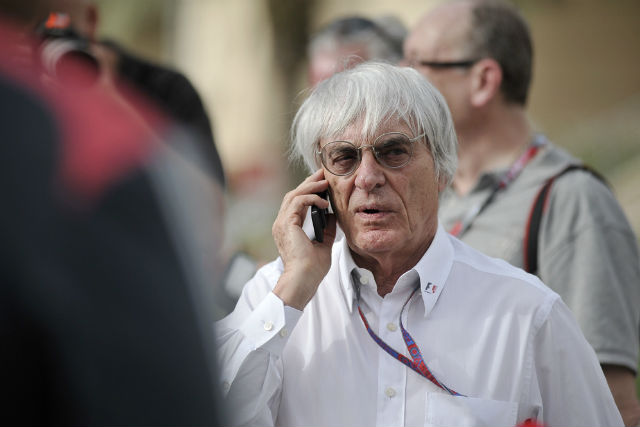
Ecclestone the man, Eccleston the myth
Born the son of a trawlerman, for the past four decades Ecclestone has ruled Formula One with a unique combination of cunning, astuteness and sheer force of will that’s more or less unmatched by any other business or sporting figure.
Having turned a relative minority interest into one of the most-watched global sports ever, even at 85 years old he continues to govern the F1 world with an iron fist, making enemies and winning admirers along the way – often in the same person.
Such is Ecclestone’s power that he’s remained in control of his empire in the face of both hell and high water, with his most recent and arguably most major challenge being a set of bribery charges levelled at him in Munich back in 2014.
Having been accused of paying a German banker £26m in order to ensure that a stake in the Formula One Group would be sold to a private equity group of Ecclestone’s choice, the F1 boss faced being imprisoned for a decade.
In the end, under German law Ecclestone was able to pay in order to end the trial, forking out £60m to walk free. Any other businessperson, regardless of their influence, couldn’t have ever hoped to hold onto their job, but Ecclestone went straight back to running Formula One’s day-to-day operations.
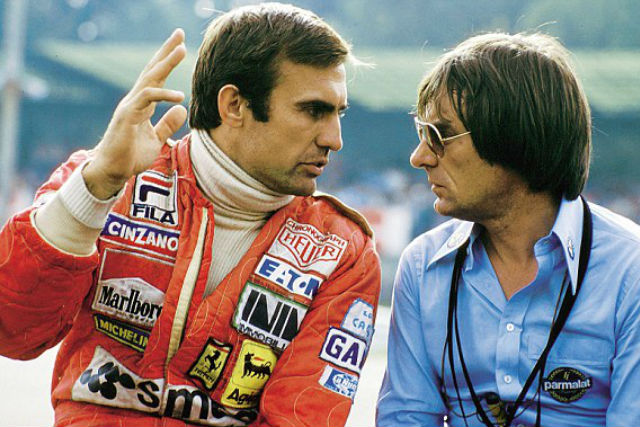
It’s not the first storm that Ecclestone successfully weathered, with controversies in the past ranging from praising Adolf Hitler for his ability to “get things done” to declaring that female racing driver Danica Patrick should dress in white like a domestic appliance.
It won’t be the last either, but then Ecclestone’s affairs are not those of a normal business and he is most certainly not a normal businessman. Where the end of the road for a man of such rare influence and notoriety lies is unclear, but the one thing that’s for certain is that it’s been a long one.
Ecclestone’s Formula One journey officially began in May 1958 after a number of years unsuccessfully attempting to race in Formula Three. He bought his way into the 1958 Monaco Grand Prix alongside F1’s first and so far only female driver, Maria Teresa de Filippis, but after failing to qualify packed racing in for a business career.
Towards the end of the 50s Ecclestone served as manager to promising F1 driver Stuart Lewis-Evans, but after Lewis-Evans died when his engine exploded at the 1958 Moroccan Grand Prix, Bernie disappeared from the racing scene for the best part of a decade, shaken by his driver’s death.
He re-emerged in the late 1960s as the manager of another racer, Jochen Rindt, and by this stage Ecclestone had already accrued an enviable wealth. When asked about the source of his income, his standard answer was always simply: “Property”.
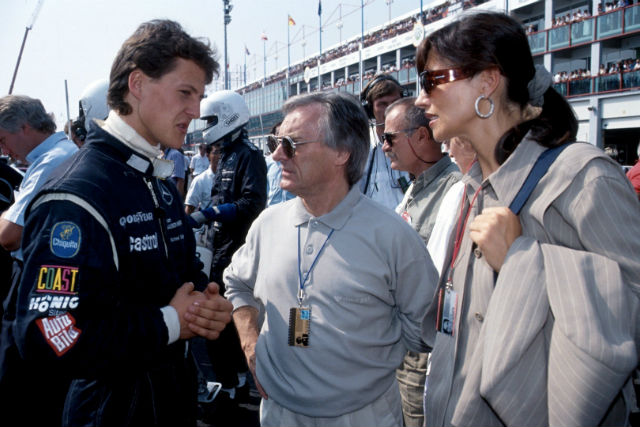
Rise to success
Many have speculated that Ecclestone might have made his earnings via less legitimate methods, with rumours persisting for decades that he was involved in the planning and execution of the Great Train Robbery.
The robbery, which saw a 15-strong group of robbers steal £2.6m from a Royal Mail train in 1963, was one of the most elaborately planned heists of its time and for many years was the largest robbery in British history.
Ecclestone was linked to it through Roy James, a promising racing driver who drove the getaway car for the gang and who had later asked Ecclestone for a job in the Brabham F1 team, which Ecclestone had bought in 1972.
The rumours claim that Ecclestone could have been the organisational brain that co-ordinated the efforts of the otherwise disorganised robbers, and the appearance of robber and long-time fugitive Ronnie Biggs at several Grands Prix did little to dampen the hearsay.
In any case, Ecclestone addressed the rumours in an interview with the Independent in 2005, stating, in typical Bernie fashion: “There wasn't enough money on that train. I could have done something better than that.”
Interestingly, Ecclestone did say that upon Roy James’ release from prison he gave him a job making Formula One trophies, including the one given each year to promoters for the best organised race of the year.
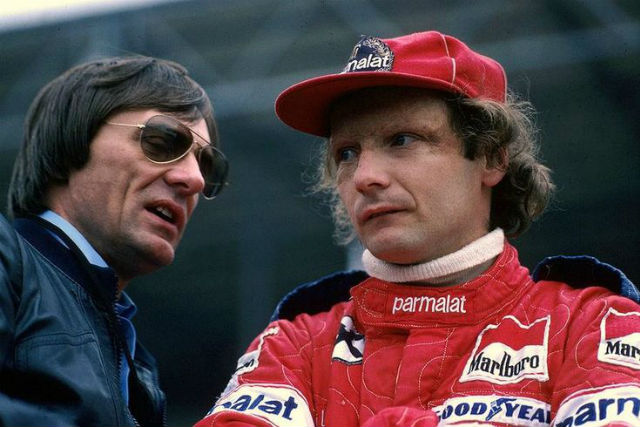
Wherever he got the money to do it, Ecclestone’s buyout of Brabham made him a member of the Formula One Constructors’ Association (FOCA), which represented the teams. As the 1970s went on, he steadily increased his power and influence to the point where he became responsible for negotiating television rights for the sport.
Up until that point, broadcast rights were organised on a relatively haphazard race by race basis, and whether Ecclestone saw the huge monetary potential or not, he wasted little time in cementing his position as F1’s commercial head.
He convinced TV stations to buy Formula One seasons as a package rather than bid against each other for individual races, which vastly increased the sport’s exposure and exponentially grew its popularity.
To this day, the system he introduced is still in place, with the teams giving him permission to sell the rights and Ecclestone giving them an annual payment in return. Yet he still wasn’t satisfied and throughout the 90s further increased his influence with the help of friend, associate and former FIA head Max Mosley.
By the middle of the decade a company owned by Ecclestone had become the rights holder of F1 instead of FOCA, while a new contract signed in 2000 declared that Ecclestone’s firm would hold the commercial rights to the sport for the next 110 years.
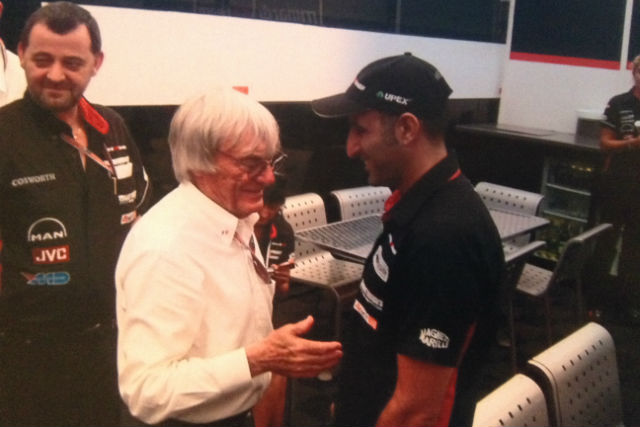
Hugely remarkable, hugely controversial
It didn’t take long for Ecclestone’s game of chess to attract the attention of authorities though, and the European Commission soon launched an investigation which concluded that for one body to hold all the power over the sport was a major conflict of interest.
The Commission’s investigation and report did little to change the everyday running of Formula One though, and even after Mosley stepped down from his position in 2009 Ecclestone remains the number one power in motorsport.
He hasn’t remained unchallenged as the German prosecutors’ efforts in 2014 show, and some have claimed that his once vice-like grip on the sport is starting to slacken, given his failure to prevent the introduction of a new turbo V6 engine formula which he had long resisted.
All the same, Bernie Ecclestone remains a man of unrivalled authority and little in Formula One happens without his knowledge and without his express consent. When the time comes, eventually, for him to be replaced, it’s unlikely any single person will be able to step straight into his shoes.
That says much about the size, the scope and the pressure of the job, but it says even more about the remarkable abilities of a hugely remarkable and hugely controversial man.



